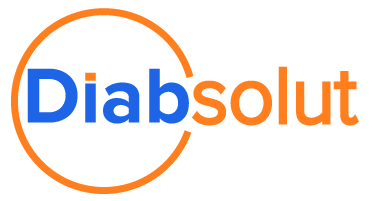Salesforce Data Infrastructure: A Hyperforce Quick Guide
Author: Stephen Sugumar
 If you haven’t heard of Hyperforce or are confused as to why it matters, it’s hugely important for enterprise and global Salesforce customers and has to do with how Salesforce data is hosted.
If you haven’t heard of Hyperforce or are confused as to why it matters, it’s hugely important for enterprise and global Salesforce customers and has to do with how Salesforce data is hosted.
This blog will review Salesforce data hosting methods, including Hyperforce (which is Salesforce’s next generation of data infrastructure architecture), and help you understand how Hyperforce works, as well as some of its benefits.
While this is a topic I’ve previously covered on LinkedIn, I’ll be adding some links for readers looking to expand their understanding of Hyperforce, Salesforce data security, and Salesforce innovations.
Salesforce Data Hosting and Hyperforce
Salesforce currently uses their own cloud and a multi-tenant approach for client instances or orgs:
- Data is completely separate and secure, and customers have full control of their instance, but share certain resources
- Think of it as living in an apartment building and sharing amenities, like the complex’s swimming pool
- The cloud is made up of different data and process layers, and when users log into their instance, it’s like using their key to get into their individual apartment — where they have complete privacy and control
Salesforce’s data architecture was revolutionary when it was introduced, but you can only fit so many tenants into a building before the pool gets overcrowded, which is why certain processes/data transactions have limits.
What does this have to do with Hyperforce?
Hyperforce is Salesforce’s answer to these limitations. It’s a version of Salesforce architecture that allows Salesforce instances to be hosted on public clouds, like Microsoft Azure, AWS, Google Cloud, etc.
- Salesforce has already been utilizing Hyperforce in certain parts of the world
- Public clouds data architecture, or the way they host data, allows for even more privacy because there is no external access
It’s like moving from that apartment to a townhouse — you don’t need a code to get into the building itself, just your house key (this type of cloud structure is something vital for certain industries like finance, health, etc.).
- It also means you get your own pool, and can upgrade that pool whenever you want, as it’s not a shared resource
Most organizations use a public cloud for certain tasks (email, document creation, etc.). So, with Hyperforce, Salesforce customers can choose to go through that same vendor to host their Salesforce instance and update their transactional limits as a whole.
How does this benefit enterprise and global Salesforce users?
- Less limits with data means better scalability
- Expansion becomes easier, leveraging a copy/paste model with public cloud data architecture
- This type of SaaS consolidation makes performance even easier to measure
Additional Benefits and Resources
Two additional benefits associated with Hyperforce use involve AI and releases:
- Salesforce’s Einstein data processing layer will have more flexibility with Hyperforce data architecture
- Which means it can work more easily with other AI to accelerate optimization and will also allow for easier data flow customization
- This goes even further with BYOM (bring your own model), allowing the connection of external data models into the Salesforce architecture
- While Hyperforce use will have no impact on Salesforce’s low/no code configuration — it will have a big impact in terms of releases
- public cloud data architecture makes downtime for updates almost non-existent (and makes major releases easier)
Helpful resources:
- Introducing Hyperforce – General Information & FAQ
- Salesforce Data Security: Answers to Our Clients’ Top 3 Questions
- A Quick Guide AI, Generative AI, and Salesforce AI Cloud
If you have Hyperforce or solution questions, feel free to reach out —our team is happy to provide solution advice, demos, or assistance to help you find the right solution for your business.
You can also keep on top of solution information and insights by following my Java with Sugar podcast page on LinkedIn. We’ve covered some great topics so far, including professional services automation solutions, pre-sales, and Salesforce Automotive Cloud.
Search
Trending Topics
- E18: Click FSE Migration to Salesforce Field Service – Java With Sugar Podcast
- E17: The Process of Migrating from a Product That Is Retiring – Java With Sugar Podcast
- E16: Decoding FSE’s End-of-Life and Common Migration Practices – Java With Sugar Podcast
- A Dual Approach to Efficiency in Field Service Management: Asset-Centric vs. Customer-Centric Models
- E15: Trends and Limitations in AI – Java With Sugar Podcast
- Enhancing Field Service Operations with SFS-X
- E14: Our Point of View and Insights on AI – Java With Sugar Podcast
- E13: What Is Artificial Intelligence and Why Is It Beneficial for You? – Java With Sugar Podcast
- AI Ethics: What Is It and Why Does It Matter?
- 3 Tips to Improve Your Strategy and ROI When Selecting SaaS Solutions
